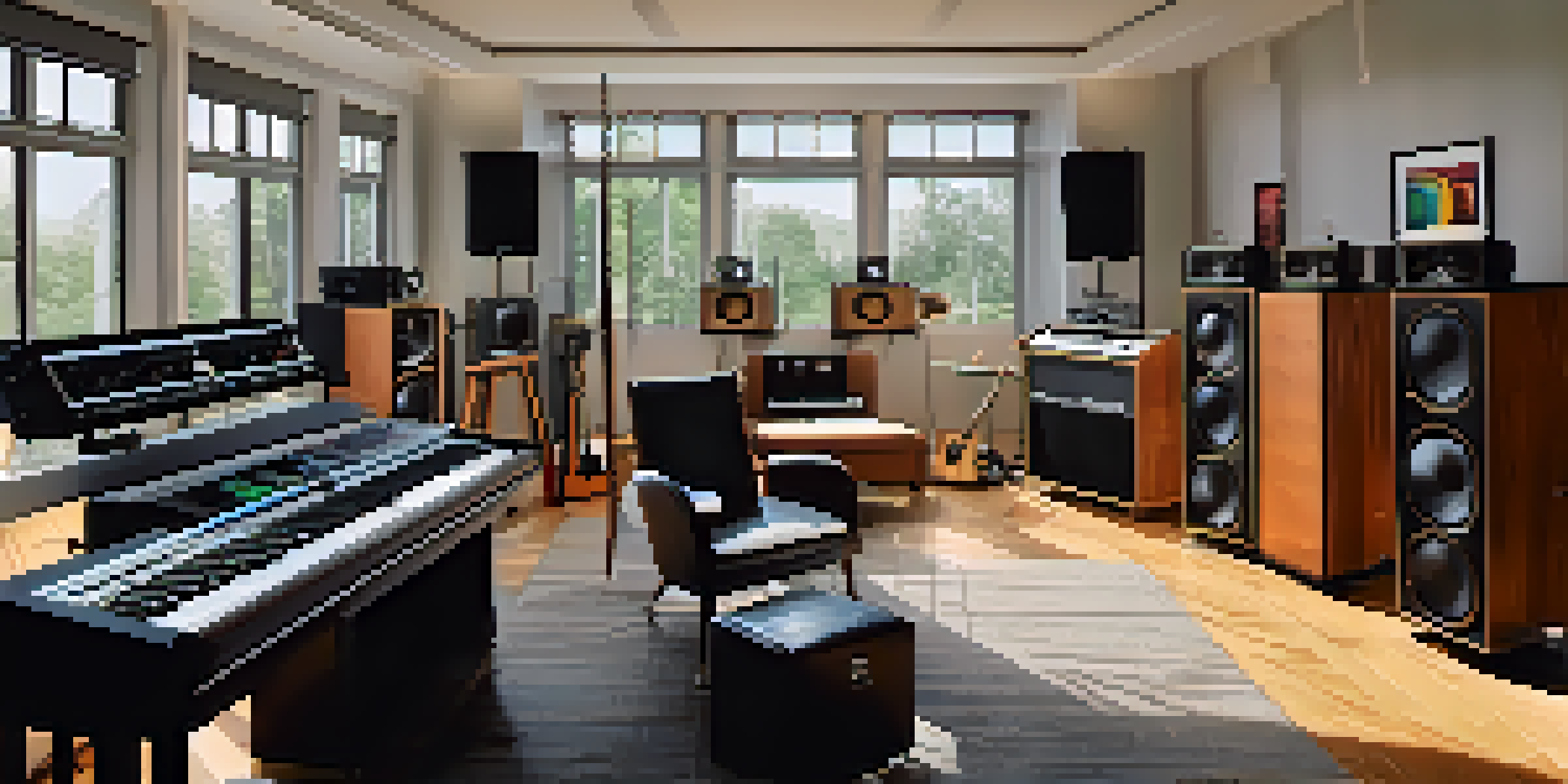The Role of Acoustics in Music Production: A Beginner's Guide

What is Acoustics and Why It Matters in Music?
Acoustics is the science of sound, encompassing how it travels, behaves, and interacts with different environments. In music production, understanding acoustics is vital for creating high-quality recordings. It helps producers manipulate sound to achieve the desired effect, whether it’s a crisp vocal track or a deep bass line.
The Basics of Sound Waves and Their Properties
At its core, sound is a vibration that travels through the air (or other mediums) in waves. These waves have characteristics like frequency, amplitude, and wavelength, which all contribute to how we perceive sound. For example, a high-frequency sound, like a whistle, has a shorter wavelength than a low-frequency sound, like a drumbeat. Understanding these properties helps producers make informed decisions about recording and mixing.
Acoustics Shape Sound Quality
Understanding acoustics is crucial for creating high-quality recordings by manipulating sound effectively.
How Room Acoustics Influence Music Production
The environment where music is recorded plays a significant role in the final sound. Room acoustics refer to how sound waves interact with the surfaces in a space, affecting clarity and resonance. A room with hard surfaces may create echo and reverb, while a space with soft furnishings can absorb sound, resulting in a warmer tone. Producers need to consider these factors when choosing a recording space.
Common Acoustic Challenges in Music Studios
Even the best studios face common acoustic challenges, such as standing waves and flutter echoes. Standing waves occur when sound waves bounce back and forth between parallel surfaces, creating uneven frequencies. Flutter echoes, on the other hand, happen when sound bounces quickly between hard surfaces, causing a series of quick, repetitive sounds. Recognizing these issues can help producers address them effectively during the recording process.
Room Acoustics Impact Recordings
The environment where music is recorded significantly affects clarity and resonance, influencing the final sound.
Acoustic Treatment: Improving Sound Quality
Acoustic treatment involves modifying a space to improve its sound characteristics. This can be done using panels, bass traps, and diffusers to control how sound behaves in a room. For instance, bass traps can help reduce low-frequency buildup, while diffusers scatter sound waves, enhancing clarity. Proper treatment ensures that the recorded sound is as true to the source as possible.
Microphone Placement: A Key Acoustic Consideration
The placement of microphones can greatly affect the sound quality of a recording. Different positions can capture varying acoustic properties, emphasizing certain frequencies or tones. For example, placing a microphone closer to a sound source captures more detail, while a distant position may pick up more room ambiance. Experimenting with microphone placement is essential for achieving the desired sound.
Digital Tools Enhance Production
Modern digital tools help manage acoustics, allowing producers to create polished recordings regardless of their environment.
The Role of Digital Tools in Managing Acoustics
In today’s music production, digital tools play a significant role in managing acoustics. Software plugins can simulate acoustic environments or adjust frequencies to compensate for poor room acoustics. Additionally, digital audio workstations (DAWs) offer features that help producers mix and edit tracks to achieve the best possible sound. These tools empower musicians to create polished recordings, regardless of their environment.
Conclusion: Embracing Acoustics in Your Music Journey
Understanding the role of acoustics in music production is essential for anyone looking to create professional-quality tracks. By recognizing how sound behaves and how to manipulate it, producers can enhance their recordings significantly. Whether you’re a beginner or a seasoned musician, embracing acoustics can elevate your music journey, making it more enjoyable and rewarding.